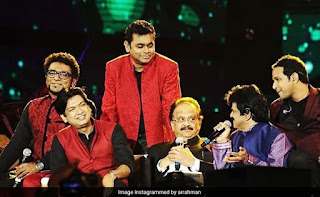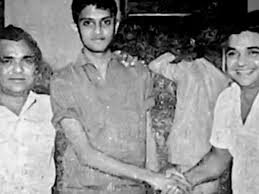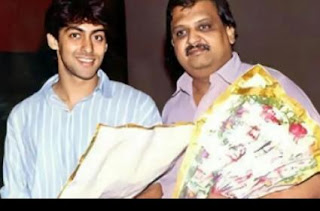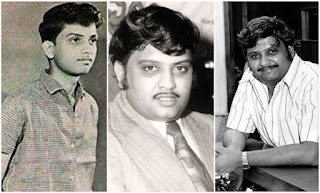PART 10 OF 10: THE BEGINNING OF THE END
The year was 1992. The First Gulf War had ended and the world was cooling off after a thirty-five nation coalition, led by the United States, handed out a decisive defeat to Iraq and its supreme leader, Saddam Hussein. The situation in Bosnia was rapidly deteriorating due to an ethnic conflict between the Serbs and Bosnians. A hundred thousand people, predominantly Bosnian Muslims, would be massacred by the end of the conflict.
India had just managed to avert a balance-of-payments near-miss that had brought the country to its knees and to the brink of bankruptcy. The government had to air-dash sixty-seven tons of bullion to European banks to secure a $600 million loan so that we could pay our monthly bills. It was a historic low-point for the country. The situation forced the then Prime Minister, PV Narasimha Rao, to announce sweeping economic reforms that would open up India's economy and eventually pull three-hundred million people out of poverty. Just when things were looking up, on Dec 6, 1992, a frenzied mob of right-wing fanatics razed the Babri Masjid in Ayodhya to the ground, resulting in a cycle of irredeemable acts of communal violence and retribution that lasted for over a decade. The secular ideal of India was dented permanently.
Back to the world of films, Madhuri Dixit was beginning to be called the Female Bachchan - in a hat-tip to the "hit" machine that the Big B of the seventies and early eighties was. And Anil Kapoor was called the Mustachioed Mumtaz, in a hat-tip to his crazy dance steps (no, that was just me). 'Beta', an edge-of-the-seat saas-bahu thriller, became the biggest hit of the year underscoring the discerning tastes of the Indian audiences then. The soon-to-be self-proclaimed 'King of Bollywood', Shah Rukh Khan, debuted with the hit movie, 'Deewana'. The Big B (and Sridevi) made a comeback of sorts with the very stylish 'Khuda Gawah'. Kamal Haasan produced and acted in the landmark Tamil movie, 'Thevar Magan', which won five national awards. A pall of gloom had spread across the Hindi film industry with the preponderance of the D-Company in filmy matters. But, if there was one person that owned 1992, it had to be the "typhoon" from Madras, Allah Rakha Rahman, popularly known as AR Rahman.
Ilayaraja was at the very peak of his hegemony in the South. He ruled the industry, especially Tamil filmdom, like no one else before and no one perhaps ever will. People have often asked me, whether a mere music composer could have such a hold over the film business to be called the "one man industry". Well, it wasn't far from the truth.
There is this interesting exchange between Arjuna and Lord Krishna from the Mahabharata. Arjuna is in a state of shock and remorse after knowing that Karna, whom he had just killed on the battlefield, was his eldest brother.
"Oh, Krishna! How can I ever excuse myself for killing my own brother?" he laments. Krishna parts with his all-knowing, NTR-like smile.
"Arjuna, you are letting your supposed success in the war get to your head. Do you seriously think that you were the one that killed Karna? Karna was killed six times before you shot that useless arrow on him. He was killed by Lord Indra who took the impenetrable armor away from him. He was killed by Sage Parashurama who cursed him for taking training from him. He was killed by Kunti who took a vow from him to fire the Naga astram only once...and so on*," Krishna reels off the list of six, like in a Visu drama. He continues, "There were six people, including me, that tied his hands and killed him before you shot the arrow on someone that was already dead. So, don't be so arrogant as to claim that you were the one that killed Karna, the noble warrior," Krishna retorted.
(Disclaimer: I am not even sure if this exchange is from Vyasa's epic. I know it only from BR Panthulu's Tamil movie 'Karnan' starring an aging, rotund Sivaji Ganesan in the titular role. Lord Krishna's role was essayed by NTR, with scary blue, Avatar-like make-up. A high-pitched Muthuraman played Arjuna, the unintended comedian Asokan was Duryodhana; and then you had OAK Devar, Javar Seetharaman, Ramdas, and every conceivable supporting actor thrown into the mix. This movie had the most over-acting per square inch of celluloid of any Tamil movie that I have scene. A few years ago, it was "digitally remastered" and re-released to packed houses. I took my extended family to the theater to watch this movie and they shed copious tears.
"What a masterpiece! Can they make one movie like this now?" My mom told her elder sister, while walking out of the theater. She looked at me accusatorily, as if I was somehow responsible for the quality of contemporary films. I didn't respond. Nothing captivates Tamil people like a good dose of over-acting, I thought).
Why am I suddenly finding refuge in the Great Indian epics? Well, there is somewhat of a poignant parallel here when it comes to Ilaiyaraja and AR Rahman. My cousins used to chide me on how AR Rahman toppled Ilaiyaraja from the numero uno slot. I used to look askance at them and part with a mischievous NTR smile.
It was the proverbial perfect storm that was brewing over the Bay of Bengal. It was left to the 'Isai Puyal'** ('The Musical Typhoon') - AR Rahman's moniker in Tamil - to provide the last gust of wind to uproot the banyan tree of music. Appa! What metaphors! ('Aala maratha saachitiye da paavi!', to Ilaiyaraja's famous 100-violin BGM).
My pick for this episode is a song from the Hindi dubbed version of 'Roja' - 'Ae haseen wadiyaan'. The original song ('Puthu vellai mazhai') is very well sung by Unni Menon. I like the Hindi version better, because Balu uses his signature lilt to take the song to an altogether new level. I would still rate 'Kadhal Rojave' ('Roja Jaaneman') as the song of the album but this is a beautiful song as well. The horrendous lyrics are by the dubbing lyrics specialist PK Mishra.










Comments
Post a Comment